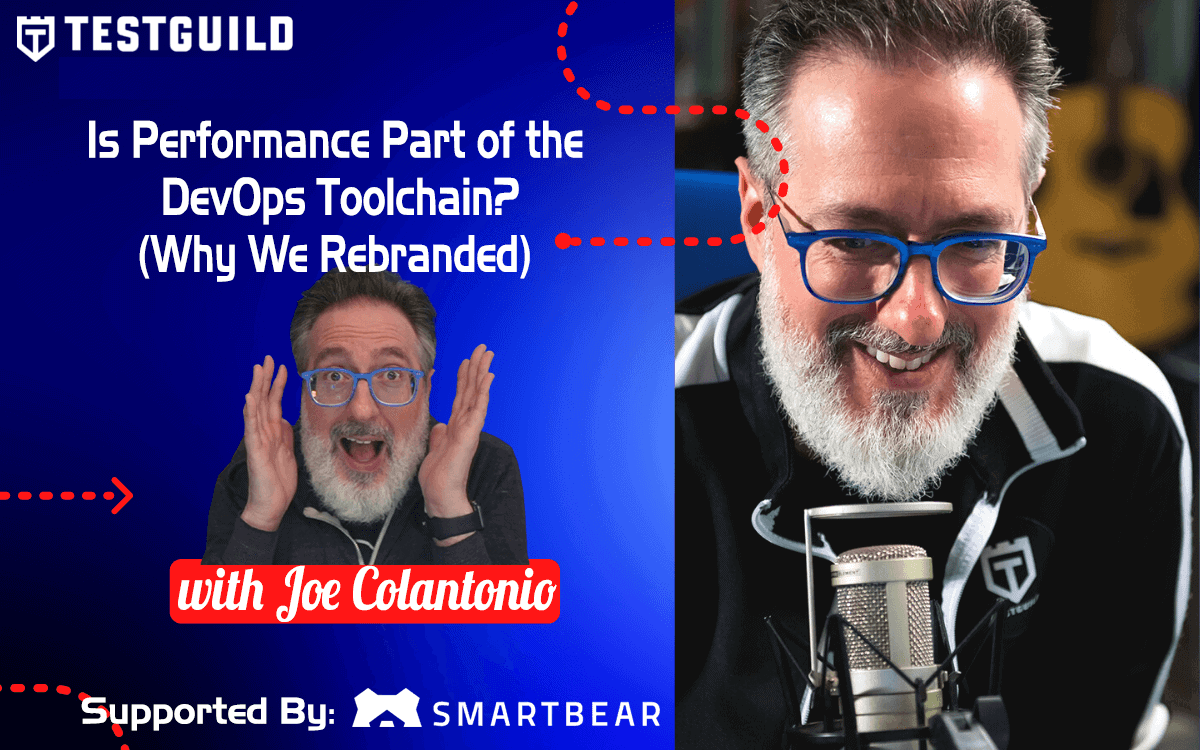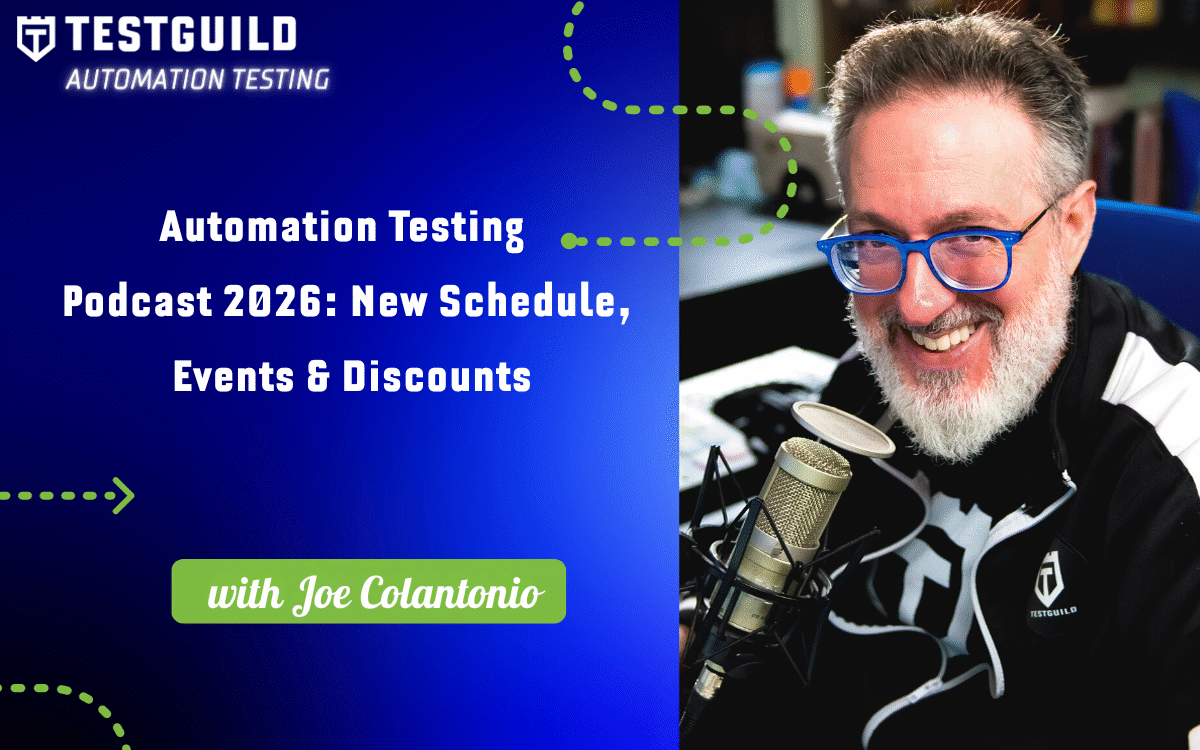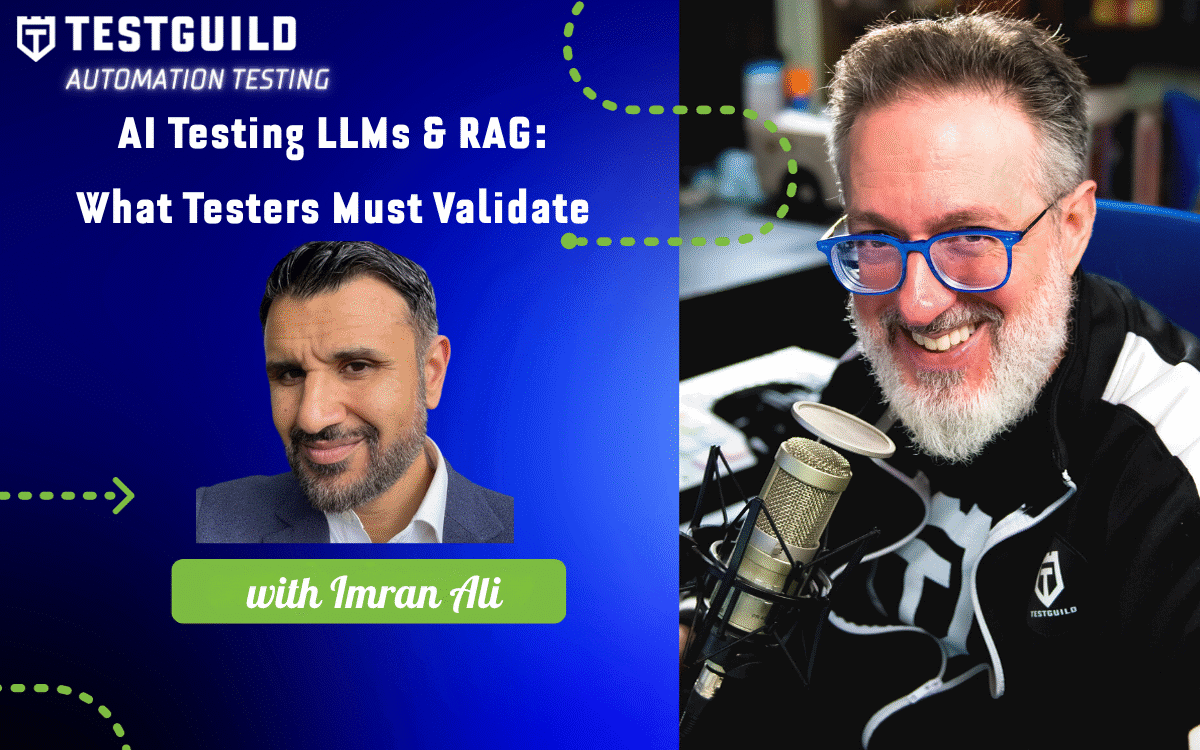About this DevOps Toolchain Episode:
Dive into the world of DevOps with our special episode of the DevOps Toolchain Show (Formally the performance and SRE show), where we unveil the reasons behind our rebranding and deep-dive into the significance of performance testing within the DevOps ecosystem. Discover how continuous testing, encompassing performance testing, becomes a vital cog in the machine, propelling the delivery of top-quality software at breakneck speeds. Buckle up as we navigate through the intricacies of the DevOps toolchain, spotlighting the essential stages and tools needed to streamline software development.
TestGuild DevOps Toolchain Exclusive Sponsor
SmartBear believes it’s time to give developers and testers the bigger picture. Every team could use a shorter path to great software, so whatever stage of the testing process you’re at, they have a tool to give you the visibility and quality you need. Make sure each release is better than the last – go to smartbear.com to get a free trial instantly with any of their awesome test tools.
Is Performance Part of the DevOps Toolchain?
Welcome to the DevOps Toolchain Show, the podcast (Formally known as The TestGuild Performance and SRE podcast), where we explore the latest trends, tools, and techniques in the world of DevOps. I'm your host, and today, we have a special episode for you. As you may know, our podcast used to be called the Performance and SRE Podcast. We've decided to rebrand and refocus our content, and today, we're going to discuss why performance testing is an integral part of DevOps and why we made this change. If you have been a loyal listener, don’t worry. We still have you covered.
Now, let's get into our main topic.
Why did we change the name of this podcast?
The world of software development has evolved rapidly, and DevOps has become the go-to methodology for many organizations. It's all about delivering high-quality software quickly, and one of the key aspects of DevOps is continuous testing.
Continuous testing encompasses various testing methods, including functional, performance, security, and more. These tests ensure that our applications are flawless and provide a great user experience.
And that's precisely why we decided to rebrand our podcast. We've been talking a lot about performance testing and SRE, but we realize that it's all part of the bigger picture – the DevOps toolchain.
But before we go further, let me ask you a question
Poll is Performance part of DevOps?
When you hear the term “DevOps Toolchain,” do you consider performance testing as part of it?
You can see how people vote. Learn more
Yes
35%
No
65%
I 100% disagree with the result of this poll!
Why Performance Testing ic Crucial to DevOps Toolchains
When it comes to performance testing, plays a critical role in the DevOps process. We must ensure our apps are scalable, reliable, and robust before being released into the market. Performance testing is a crucial element in achieving those goals.
Scalability, reliability, and robustness are three key aspects that developers should strive for when building applications. Performance testing helps identify bottlenecks and other issues that could lead to poor user experience or application downtime.
And don’t forget the importance of the continuous aspect of performance testing in DevOps. By continuously performance test our applications, we're able to catch issues early in the development process and resolve them quickly. The goal should be to develop the most performant software possible. This leads to not only higher quality software but also a faster time-to-market and, ultimately, happy customers.
And that's what DevOps is all about – breaking down the barriers between development and operations and delivering high-quality software quickly and efficiently.
Also, to be honest, it’s been difficult to consistently get guests to talk on just performance topics so this should help us get back to our planned weekly release.
It also opens up the option to speak with more leaders that can help you – for example, Hey Joe, it has been years; how are you, man? I didn't know you also cover the DevOps space; if I had known, I would have contacted you much earlier as I'd love to show you what we built and learn how you can maybe do an episode about us at TestGuild… Can we set us a call about it?
What we Will Cover on the DevOps Toolchain
So, as we rebrand our podcast to the DevOps Toolchain Show, you can expect to hear more discussions about the various tools and techniques involved in the DevOps process and how they all work together to help teams deliver top-notch applications.
For example, it might make sense to go over what is a DevOps ToolChain, its various stages, and the tools that can help you streamline your software development process. to understand all the different topics we can now cover on this show.
When we talk about a DevOps toolchain, we're referring to a set or combination of tools that aid in delivering, developing, and managing software applications throughout the systems development life cycle. These tools are coordinated by organizations that follow DevOps practices and typically support one or more activities crucial for specific DevOps initiatives. These activities include planning, creating, verifying, packaging, releasing, configuring, monitoring, and version control.
Since DevOps is more of a practice than a technology, no single tool can handle all stages of software development. Instead, it's essential to form a series of tools or a toolchain to address the various needs of each stage.
Stages of the DevOps Toolchain
And there are many open-source DevOps tools available out there. Combining them based on your needs allows you to create a DevOps toolchain that makes product delivery faster and more efficient. Now, let's discuss the different stages of the DevOps process and the tools associated with each stage.
First, the planning stage involves defining and planning the business value and application requirements. This stage includes tasks such as setting production metrics, establishing requirements, determining business metrics, planning release schedules, and defining security policies. The planning stage typically involves collaboration between various IT personnel, including software developers, architects, and security officers.
Next, we have the creation stage, which focuses on the software development process's design, coding, and configuration. This stage includes activities such as software design, coding, software builds, and creating release candidates. Tools and vendors in this category often overlap with other categories, reflecting the nature of DevOps, which aims to break down silos.
Then we move on to the verification stage, which ensures the quality of the software release. This stage involves activities such as acceptance testing, regression testing, security and vulnerability analysis, performance testing, and configuration testing. Solutions for this stage generally fall under four main categories: test automation, static analysis, test lab, and security.
Packaging is the next stage, which involves preparing the release for deployment, sometimes called staging or preproduction. Tasks in this stage include approvals, package configuration, triggered releases, and release staging and holding.
After that, the release stage encompasses activities like release coordination, application deployment and promotion, fallbacks and recovery, and scheduled or timed releases. Solutions covering this aspect of the toolchain include application release automation, deployment automation, and release management.
In addition to these stages, a successful DevOps toolchain should also include planning solutions, collaboration and communication tools, source code management tools, continuous integration (CI) tools, and test automation tools. These tools help teams identify and implement business goals, improve communication, track code changes, automate testing, and much more.
Thank you for that overview. We're excited about this new direction and hope our listeners are also. In future episodes, we'll dive deeper into the world of DevOps, exploring topics like automation, containerization, infrastructure as code, and more.
Rate and Review TestGuild DevOps Toolchain Podcast
Thanks again for listening to the show. If it has helped you in any way, shape or form, please share it using the social media buttons you see on the page. Additionally, reviews for the podcast on iTunes are extremely helpful and greatly appreciated! They do matter in the rankings of the show and I read each and every one of them.




